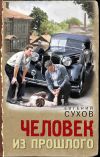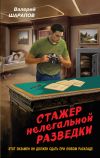Текст книги "The Mystery of the Sea / Тайна моря"

Автор книги: Брэм Стокер
Жанр: Исторические приключения, Приключения
Возрастные ограничения: +16
сообщить о неприемлемом содержимом
Текущая страница: 23 (всего у книги 31 страниц)
Chapter XLII. A Struggle
I think that at first sheer amazement had controlled the Spaniard's thoughts. But whatever the cause of the control was, it soon passed away; then the whole fiery nature of the man seemed to sweep from him like a torrent:
“And so all the learned arguments with which you have overwhelmed me, were but a cloak to cover your possession of the treasure which it was given to me and mine to guard. I might have guessed, that without the certainty of possession you would not have been so obdurate to my offer, given in all sincerity as it was. From other things, too, I might have known! That woman, so old, who watches you with eyes that see more than is to see, and who have reason of her own to mistrust you, she telled to me that nightly she has heard you dig in the rock as though you make grave. Take care it is not so! I am guardian of that treasure; and I am desperate! Already have I told you that all things are to me, all ways to fulfill the trust of my fathers. We are here alone! I am armed; and already my life is forfeit to this course. Yield yourself, then, to me!”
Like a flash of light he had drawn a dagger from his breast; and with an upward sweep of his hand held it poised, either to strike or throw. But already I had taken warning from his eyes. Ever since danger had threatened Marjory, I had carried my revolver with me; even at night it rested under my pillow. The practice which Marjory and I had often had, till she had taught me the old trick which her father had taught her of getting “the drop” on an adversary, stood me now in good stead. Whilst he had been drawing his dagger, I had already covered him; he finished the words of his command straight into the muzzle of my six-shooter. I said as quietly as I could, for it was with a mighty effort I kept approximately calm under stress of such a sudden attack:
“Drop that dagger! Quick; or I shall shoot it from your hands!” He recognised his helplessness in the matter. With a despairing sigh he opened his fingers; the dagger fell jingling to the floor. I went on:
“Now hold up your hands, well above your head! Move back to the wall!” He did so, and stood facing me with a disdainful smile. I stooped, and with my right hand picked up the dagger, still keeping him covered with my left. I put the weapon on the far side of the table, and approached him. He did not move, but I could see that he was sizing me up. This gave me no anxiety, for I knew my own strength; and I had also a shrewd idea that if he had any other arm about him he would not be calculating his chances for a physical struggle. Cautioning him that his life depended on his stillness, for I still held my revolver to his breast, I passed my hand lightly over him; he had manifestly no other weapon. The only sign of one was the sheath of his dagger; this I took from him. I placed the dagger in it and put it in my own pocket; then I drew a chair to the middle of the room and motioned him to sit down. He obeyed sullenly. Having by this time regained something of my serenity of mind, I spoke:
“Your pardon, Sir, for the indignity to which I have been obliged to submit you; but I am sure you will remember that it was not I who began the question of force. When you thought it right to draw arms upon me in my own house, you made it necessary that I should protect myself. Now, let me say something in answer to your charge against me. The finding of the treasure has nothing whatever to do with my theory of action; I should hold my present view just as strongly had we not made the discovery. Indeed, I may say that since we have had actual possession of the treasure, it seems not nearly so desirable as it had been. So far as I am concerned, I don't care a straw whether I have ultimate possession of it or not; but I am so fixed up that if I waive my rights-that is if I have any to waive-that I may aid in doing a repugnant thing to a very dear friend. That I shall not do. I shall oppose its doing by any means in my power!” The Spaniard saw a chance, and spoke:
“But if I undertake-” I cut him short:
“Sir, in this matter you are not in a position to undertake. By your own showing, you are simply bound to fulfill your trust and to restore the treasure to the King, who will restore it to the Pope; or to restore it to the Pope direct.” He answered quickly:
“But I can stipulate-” again I interrupted him for this was a useless road to travel;
“How can you stipulate? You would, or might, be told to simply fulfill the duty that had been undertaken for you. Did you refuse, from whatever motive, no matter how justly founded, on ground of right or honour, you would not be holding to the simple terms of your trust. No! sir. This is no private affair to be settled by you or me, or by us both together. It belongs to politics! and international politics at that. The Government of Spain is desperately in want of money. How do you know to what shift, or to what specious argument it will condescend in its straits. I have no doubt that, should anything be done contrary to your idea of fair play, you would be grievously pained; but that is not to the point. Your Government would not take thought for any wish of yours, any more than for aught of mine. Your King is a minor; his regent is a woman, and his councillors and governors are all men chosen to do what they can to save their country. Sir, but a few minutes ago you professed it your duty to take any step, even to crime and disho-nour, to carry out your duty. Indeed, you drew a weapon upon me, a presumably unarmed man, in my own house in which you are a self-invited guest. Suppose some of the Government of Spain hold ideas of their duty, equally strong and equally unscrupulous; who then is to answer for what they do. Why, in such case, they would undertake anything, until they had got possession of the treasure; and would then act entirely upon what they would call their 'better judgment.'” His native pride awoke in an instant for he said hotly:
“I would have you know, Senor, and remember always when you talk with a Spaniard, that our statesmen are not criminals, but men of honour.” I bowed instinctively as I answered him:
“Sir, I have no doubt whatever, and I speak in all sincerity, that you yourself are, under normal circumstances, a man of the highest honour. Your self-sacrificing offer has shewn me that; and I have added to that knowledge by seeing the pain you have suffered at even the thought of dishonour.” Here he bowed low, and there was a look of gratitude in his eyes which touched me to the quick. “And yet even you have openly told me that all your belief in honour, all your life-long adherence to its behests, will not keep you from fulfilling a duty should these things clash. Nay more, you have already done things which I take it are at variance with your principles. How then can you, or I, believe that other men, of less lofty lineage and less delicate sense of honour, will forego an advantage for their country in distress, yielding to a theoretical point of right or wrong. No sir” I went on pitilessly, for I felt that it would be a kindness to him to shut absolutely this door of hope, “We must take no step which will place in the hands of others the guardianship of that treasure, of which you have hitherto conceived yourself trustee, and of which I now believe myself to be the owner.” For fully several minutes we faced each other in silence. His face grew more and more fixed and stern; at last he stood up with such a look of resolution that instinctively my fingers tightened round the butt of my revolver. I thought that he might be about to throw himself upon me, and attempt even at such odds as were against him, a struggle for present mastery. Then, without moving from his place, he spoke:
“When I have done all I can to fulfill my trust in its completeness, and have failed, I shall ask the government of my country to make representation to her friend England of a friendly claim, so that we may get even a part of the treasure; and then I will devote myself to the avenging of my honour on those who have foiled me in my duty!” This was a sort of speech which braced me up again. It was a promise of war, man to man, and I could understand it better than the subtleties which now enmeshed us. I put my pistol back in my pocket, and bowed to my opponent as I answered:
“And when that time comes, Sir, you will find me at your service; how you will; where you will; and when you will. In the meantime, when first you place the matter on the international plane, I shall take care that the American government, in which dear friends of mine are interested, shall make friendly demand of her friend, England, that she shall take no step with regard to this particular treasure-if indeed it be then in her possession-which may be used to the detriment of the trans-Atlantic power. Thus you see, sir, that time must in any case elapse before a final settlement. Nothing can be done till the close of the present war, when I take it that immediate need of the sinews of war shall have ceased to exist. Be very careful, then, how you take any steps to bring upon the scene other powers than ourselves; powers vastly more strong, and vastly less scrupulous-perhaps.” He answered nothing, but looked at me a long time in silent cold disdain. Then he said quietly:
“Have I your permission, Senor, to depart?” I bowed, and brought him to the door. When outside he turned, and, lifting his hat high in an old-fashioned, stately way, bowed. He passed up the laneway towards Whinnyfold, without once glancing back.
As I stood looking at him, I saw in the dusk Gormala's head now and again showing above the low green bank which guarded the edge of the cliff. She was bent double, and was in secret following the Spaniard.
I went back to the house to think over matters. Altogether, we were getting so complicated that there did not seem any straight road to take. In the back of my mind I had a firm idea that the best thing I could do would be to hand over the treasure to the custody of the police; inform the Sheriff; and get my solicitor to enter a formal claim of ownership, wherever the claim should be made. Then I should get Marjory to come upon our honeymoon. I could see that her mind was almost, if not quite, made up to accept this step; and for a while I lost myself in a day dream.
I came back to the reality of things by dimly and gradually realising that it had grown dark. So I made preparation for the night, bearing in mind that I had a vast treasure in my possession, and that a desperate man who claimed to represent its ownership was aware that I had it in the house. It was not till I had seen to the fastenings of every window and door, that I began to prepare a meal.
By this time I was exceedingly hungry; when I had eaten I seated myself before a rousing fire of pine logs, lit my pipe, and began to think. Without, the wind was rising. I could hear it whistle along the roof, and now and again it roared and boomed down the chimney; the leaping fire seemed to answer its call. I could not think definitely; my thoughts kept whirling in a circle from the Spaniard to the treasure, from the treasure to Gormala, from Gormala to Marjory, and from Marjory back to the Spaniard again. Every time the cycle became complete and my thoughts came back to Marjory, my rapture as I thought of her and of our future, became clouded by a vague uneasiness. It was out of this that the thought of Don Bernardino came to commence the next round of thought. In all my mental wanderings he became a dominant character; his pride, his sense of duty which subordinated even honour, his desperation, his grief, all seemed to be with me and around me. Now and again I trembled, when I thought that such self-sacrificing forces might be turned against Marjory.
Little by little, despite all my anxiety, stole over me the disposition of sleep. I was indeed almost worn out. The events of the past few days had crowded together so quickly that I had had no time for pause. Even the long sleep which had crowned the vigil in the water cave had not enabled me to lay in, so to speak, a provision of sleep; it had been the payment of a debt to nature rather than the putting by of capital. I had the consoling thought that Marjory had promised me she would not leave Crom Castle till I came. Safe in this thought I rolled myself in rugs-choosing those that she had used-and fell asleep.
I think that even in sleep I did not lose the sense of my surroundings, for in dreams my thoughts ran in their waking channel. Here again, all the disturbing elements of my life of late became jumbled together; and a sort of anxiety regarding something unknown seemed to brood over me. So far as I remember, I slept fitfully; waking often in a sort of agony of indefinite apprehension. A couple of times I made up the fire which was falling low, for there was a sort of companionship in it. Without, the wind howled more loudly, and each time as I sank back to rest I pulled the rugs more closely around me.
Once, I started broad awake. I thought I heard a cry, and naturally, in my present frame of mind, my thoughts flew to Marjory in some danger; she was calling me. Whatever the cause was, it reached my brain through a thick veil of sleep; my body answered, and before I had time to think of why or wherefore, I was standing on the floor broad awake, alert and panting. Again there came a sharp cry outside, which threw me in an instant into a cold sweat. Marjory was in danger and was calling me! Instinctively I ran to the window, and pulling open the shutters, threw up the sash. All was dark outside, with just that cold line on the far Eastern horizon which told of coming dawn. The wind had risen high, and swept past me into the room, rustling papers and making the flames dance. Every now and again a bird swept by me on the wings of the wind, screaming as it flew; for the house was so close to the sea that the birds took no note of it as they would ordinarily do of a human habitation. One of them came so close that its scream seemed to sound loudly in my ears; it was doubtless just such a cry as this which had torn me from my sleep. For a while I hesitated whether I should go right away to Crom; but second thoughts prevailed. I could not get into the house at such an hour, without creating alarm and causing comment. So I went back to the chimney corner, and, piling on fresh logs and snuggling into my nest of rugs, soon found sleep again descending on me. The serenity of thought which comes with the day was using its force…
This time I woke more slowly. The knocking was continuous and imperative; but it was not a terrifying sound. We are all more or less used to such sounds. I listened; and gradually consciousness of my surroundings came back to me. The knocking was certainly persistent… I put on my shoes and went to the door.
Outside was Mrs. Jack, looking troubled and hot in spite of the cold of the wind which seemed to sing around the house. As I opened the door, she slipped past me and closed it behind her. Her first words made my heart sink, and my blood run cold with vague terror:
“Is Marjory here?”
Chapter XLIII. The Honour of A Spaniard
Mrs. Jack saw the answer in my eyes before speech came, and staggered back against the wall.
“No,” I said “Why do you ask?”
“She is not here! Then there is something wrong; she was not in her room this morning!”
This morning! The words set my thoughts working. I looked at my watch; it was past ten o'clock. In a dazed kind of way I heard Mrs. Jack go on.
“I did not say a word to any of the servants at first, for I didn't want to set them talking. I went all over the house myself. Her bed had not been slept in; I pulled the clothes off it and threw them on again roughly so that the maid might not suspect. Then I asked quietly if any of the maids had seen her; but none had. So I said as quietly as I could that she must have gone out for an early walk; and I took my breakfast. Then I had the cart got ready, and drove over here myself. What can it be? She told me last night that she was not going out until you came; and she is always so exact when she says a thing, that there must be something wrong. Come back with me at once! I am so anxious that I don't know what to do.”
Two minutes sufficed for my toilet; then shutting the door behind us, we got into the cart and drove to Crom. At the first and at the last we went quietly, so as not to arouse attention by our speed; but in the middle space we flew. During the journey Mrs. Jack had told me that last night she had gone to bed as usual, leaving in the drawing room Marjory, who had told her that she was going presently into the library to write as she had a lot of letters to get through, and that no one was to wait up for her. This was her usual habit when she sat late; it therefore excited no extra attention. Mrs. Jack who was an early riser, had been dressed for an hour before she went to Marjory's room. In the course of her enquiries amongst the servants, one of them, whose business it was to open the hall door, told her that she had found it locked and chained as usual.
Within the house at Crom we found all quiet. I went at once into the library, as that was presumably the last place where Marjory had been. As we went, I asked Mrs. Jack if any letters had been left out to post. She said no! that the usual habit was to put such in the box on the hall table, but she had herself, looked, when she came down to put in a letter for America. I went over at once to the table near the fire where Marjory usually sat at night. There were plenty of writing materials and blank paper and envelopes; but not a sign of a letter or anything written. I looked all round the room but could see nothing to attract my attention. Once more I asked Mrs. Jack what Marjory had said to her about her intention of not leaving the castle till I had come. With some hesitation at first, as though she were fearful of breaking confidence, but after wards more freely as if glad to be able to speak, she told me all:
“The dear child took to heart what I said yesterday about her living with her husband. After you had gone she came to me and laid her head on my breast, as she used to do as a little child, and began to cry; and told me that I had been very good to her. The darling! And that her mind was made up. She realised now her duty to her husband; and that as he wished her to stay in the house, nothing in the world would induce her to leave it till he came. That was the first act of her new duty! And, oh my dear! that is why I was so concerned when I found that after all she was not in the house. I don't understand it; there must be something on foot that I don't know; and I am full of fear!” Here the old lady quite broke down. I felt that any self control now was precious. It would not do to leave Mrs. Jack in ignorance of the danger, so I told her in as few words as I could of the blackmailing going on and of the watch set by the United States Secret Service. At first she was overwhelmed; but her early apprenticeship to dangers of all kinds stood her in good stead. Very soon her agitation took practical shape. I told her I was off to seek for help, and that she must keep the house till I returned. I would have tried the secret tunnel, but from what Mrs. Jack had said I was convinced that Marjory had never left the house of her own accord. If she had been captured she was doubtless far away by this time. It was possible that the blackmailers had found the secret passage into the Castle by which Don Bernardino had come. Here the thought came to me in full force; that was how they had discovered it. They had seen and watched the Don!.. I felt that another debt for our day of reckoning had been piled up against him.
I got in the cart again and went to Cruden as hard as the mare could go. As I went, I formed my plans, and had my telegrams made up in my mind ready to write them out at once. For a while I doubted whether I should go to another telegraph office, lest the Cruden people might come to know too much. But there was no need of concealment now. I was not afraid of any one knowing, though I determined to be discreet and secret if possible. The circuit was occupied, so I found the use of the priority telegraph forms Adams had sent me. There was not a moment lost; one was being despatched whilst I was writing the next. To Adams I said:
“They have succeeded: Wire men see me at Crom right away. Come if you can. Want all help can get. Time vital…”
To Cathcart I wired at his house in Invernesshire:
“Come to me without moment's delay. Vital. Want every kind of help.” I knew he would understand, and would come armed.
As it would be some little time before anything could be done, I determined to find Don Bernardino if possible; and induce him to show me the secret exit. Without knowledge of this we would be powerless; with it we might find some clue. I did not make up my mind as to what I would do if he refused; but to myself the instinctive grinding of my teeth, and clenching of my fingers, seemed to answer my question. Of one thing I was glad, he was a gentleman. In such a matter as that in which I was engaged, there were possibilities, if even there were not definite hope.
I drove to Ellon; and from the agent there got his address. I soon found it; an old-fashioned house near the town, in a tiny park surrounded with great trees. I left the cart on the road, with the mare tethered to the gate post, there being no lodgekeeper or no lodge. Before I rang the hall-door bell I saw that my revolver was ready to my hand. The instant the door was opened I stepped in, and said to the old woman who opened it:
“Mr. Barnard is in the study I suppose? I have pressing business with him!” She was so taken aback by the suddenness of my entry and speech that she pointed to a door saying: “He is in there.”
As I entered the room, closing the door behind me, the Don, who had been seated in a large chair with his back to the door turned unconcernedly. He had evidently not expected any disturbing visitor. The instant he saw me, however, he leaped to his feet, all his hostility awake. As he scanned my face his concern grew; and he glanced around, as though seeking for some weapon. I put my hand on my revolver, and said as quietly as I could, remembering his own precision of manner:
“Forgive my intrusion, Sir; but I have urgent need of speech with you.” I suppose there was something in my tone which bore home to his brain the idea that I had changed in some way since we had met. Do what I would, I could not conceal the anxiety of my voice. After a pause he said:
“Regarding the treasure?”
“No!” said I: “Since last night I have not even given it a thought.” A strange, new look came over his face, a look in which hope and concern seemed to have equal parts. He paused again; I could see he was thinking. Mechanically I tapped my foot on the floor with impatience; the golden moments were flying by. He realised my gravity of purpose, and, manifestly turning his attention to me, said:
“Speak on Senor!” By this time I had well in my mind what I intended to say. It was not my purpose to further antagonise the Spaniard; at the outset at any rate. Later on, that might be necessary; but I should exhaust other means first.
“I have come, Sir, to ask your aid, the help of a gentleman; and I feel at a loss how to ask it.” Through the high-bred courtesy of the Spaniard's manner came a note of bitterness, as he answered:
“Alas! Senor, I know the feeling. Have not I myself asked on such a plea; and stooped in vain!” I had nothing to say in reply to this, so went on:
“Sir, I am aware that you can make much sacrifice: I ask, not for myself, but for a lady in peril!” He answered quickly:
“A lady! in peril! Say on Senor!” There was such hope and purpose in his quick tone that my heart instinctively leaped as I went on:
“In peril, sir; of life; of honour. To you I appeal to lay aside your feelings of hate towards me, however just they may be; and come like a true gentleman to her aid. I am emboldened to ask this because it was, I think, by your act that the peril-the immediate peril, has come to her.” He flushed at once:
“Through me! Peril to a lady's honour through me! Have a care, sir! Have a care!” With a rush I went on:
“By your going into the castle through a secret passage, other enemies of the lady, low, base and unscrupulous who have been plotting to carry her off for ransom, have doubtless made an entry otherwise impossible to them. Now we must find a clue, and at once. Tell me, I implore you, of the secret way; that thus we may at once begin our search.” For a few seconds he looked me through and through; I think he suspected some plot or trap, for he said slowly:
“And the treasure; can you leave it?” I answered hotly:
“The treasure! I have not even thought of it since the news came of Marjory's disappearance!” Here I took it that he was beginning his unscrupulous purpose, and was playing my loss against his own; and a thought came to me that had not even crossed my mind before-had he been the abductor for the purpose of just such a bargain? I took from my pocket the key of the house in Whinnyfold and held it out to him. “Here Sir” I said “is the key of my house. Take it with all it contains, and all it leads to! The treasure is as you left it last night; only help me in my need.”
He waved my hand aside with an impatient gesture as he said simply:
“I do not bargain with a woman's honour. Such comes before all the treasures of Popes or Kings; before the oath and duty of a de Escoban. Come! Senor, there is no time to lose. Let us settle this affair first; later we can arrange matters that rest between thee and me!”
“Your hand, Sir” was all I could say. “In such trouble as mine, there is no help like that of a gentleman. But will you not honour me by keeping the key? This other is a trust which you have won by honour; as your great ancestor won his glorious duty long ago.” He did not hesitate; all he said as he took the key was:
“It is a part of my duty which I must not forego.”
As we left the house he looked like a new man-a man born again; there was such joyous gladness in his face and voice and movements that I wondered. I could not help saying when we had got into the cart and were on our way:
“You seem happy, Sir. I would that I could feel the same.”
“Ah, Senor, I am happy beyond belief. I am happy as one raised from Hell to Heaven. For now my honour is no more perilled. God has been good to me to show a way, even to death, without dishonour.”
As we flew along to Crom I told him what I knew of the secret passage between the chapel and the monument. He wondered at my having discovered the secret; but when I told him of how the blackmailing gang had used the way to evade the Secret Service men, he suddenly cried out:
“There was but one who ever knew the secret of that passage; my kinsman, with whom I stayed in Crom when young, told me of him. He tried much to find the entrance to the Castle, and finally under threat he went away to America. He was a base-born and a thief. It must be he who has come back after these years and has told of the secret way. Alas! they must have watched me when I went, all unsuspicious; and so discovered the other secret.” Then he tried to explain where the entrance was. It was not in the chamber where we had expected it would be, but in a narrow corner of the stair, the whole corner being one stone and forming the entrance.
When we arrived at Crom we found that the Secret Service men were waiting for me, having been instructed from London. There were also telegrams from Adams and Cathcart saying that they were on the way to join me. Adams wired from Aberdeen, and Cathcart from Kingussie. Mrs. Jack was with the detectives and had taken them through the rooms which Marjory had used. They had had up the servants one by one and examined them as to what they knew. The chief man had insisted on this; he said matters were now too serious to play the fool any longer. The servants were not told anything, even that Marjory was missing; but of course they had their suspicions. A peremptory order was given that no one should leave the house without permission. The chief confided to me that Mrs. Jack had quite broken down when she was telling him that Marjory knew all along about the blackmailers and had never told her. “But she's all right now, Sir,” he concluded. “That old lady is just full of sand; and I tell you her head is level. She's been thinking of everything which could possibly be of use to us. I guess I have heard more of this racket within the last half hour than I have done in the last two weeks.”
By the instructions of Don Bernardino we went into the library. I asked Mrs. Jack to send for lamps and candles, and these were brought shortly. In the meantime I asked that one of the detectives should be sent into the old chapel and another to the monument on the hill. Both were warned to have their guns ready, and to allow no one to pass at any hazard. To each before going I explained the secret mode of entry.
The Don went over to one of the book-cases-the very section containing the shelf in which I had replaced the old law book. Taking out that particular volume, he put his hand in and pressed a spring. There was a faint click. He replaced the book and pressed against the bookcase with slow level pressure. Very slowly it seemed to give way before him; and then turning on a hinge at one side, left an open cavity through which a man could easily pass. I was about to rush in, and was quite ready, with a lamp in one hand and a revolver in the other, when the chief of the detectives laid a restraining hand on my arm as he said:
“Wait a moment. If you go too fast you may obliterate some sign which would give us a clue!” The wisdom of his speech was not to be gainsaid. Instinctively I fell back; two of the trained observers drew close to the doorway, and holding their lamp in such wise as to throw light all round the opening, began an exact scrutiny. One of them knelt down and examined the flooring; the other confined his attention to roof and walls. After a silence, lasting perhaps a minute, the man kneeling stood up and said:
Правообладателям!
Это произведение, предположительно, находится в статусе 'public domain'. Если это не так и размещение материала нарушает чьи-либо права, то сообщите нам об этом.








































